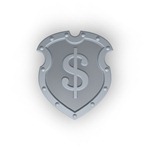Banks and credit unions offer accounts called money markets as another way to help you save your money and gain interest on that money. Money  markets are similar to savings accounts, but they provide an easier way to access your money through check writing and debit cards.
markets are similar to savings accounts, but they provide an easier way to access your money through check writing and debit cards.
Money Market Accounts
When you put your money into money markets, you are allowing the bank to use your money for loans such as cars, homes or small businesses. Banks and credit unions are able to use your money for these loans because money markets are FDIC insured. This means, the only way you lose your money is if the bank and the government both fail. Financial advisors advocate having part of your money in an FDIC insured account as a good way to protect your money from the ups and downs of the economy.
Savings accounts tend to have a lower opening deposit and a lower minimum balance than money markets, but money markets tend to offer higher interest rates on your money. There are some money markets that have no minimum deposit or balance. Both savings accounts and money market accounts have regulations that limit the number of withdrawals to six per month except for ATM withdrawals which are unlimited. Stay within those requirements, or you will be charged a fee for each withdrawal over the allowed amount. Even though check writing and debit cards are available for money market accounts, you don’t have the same unlimited transaction freedom offered through checking accounts, so be smart about how often you withdraw money.
Money market accounts are a great way to keep your money safe. Having restrictions on the number of withdrawals is one way to make sure you leave your money where is should be; in the money markets, gaining interest.
For an up-to-date list of the Highest Money Markets, Click Here
